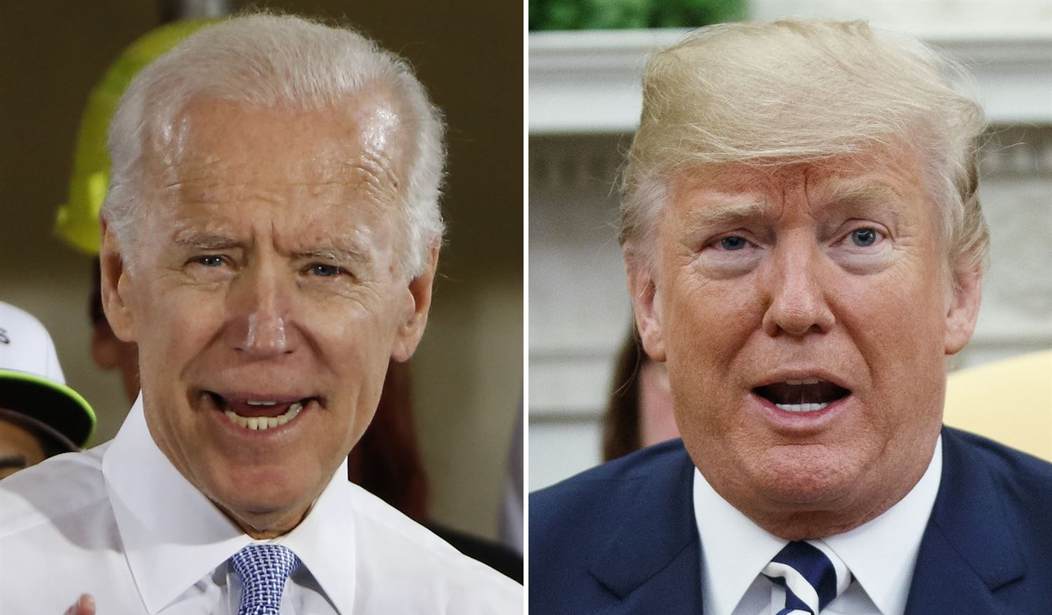Based on the polls, the 2024 election is Donald Trump’s to lose. He leads in the national and battleground matchup polls, and Joe Biden’s approval ratings are firmly in the not-going-to-get-reelected territory. Democrats have been trying desperately to stop Trump’s return to the White House—everything from lawfare to put him in jail to trying to block him from the ballot.
But, the party has bigger problems than just that they may lose the presidential election in November. As we’ve been pointing out here at PJ Media, polls have shown that Democrats are losing support from minority voters, which could have long-term ramifications for the party. In fact, New York Times columnist Thomas Edsall wrote that it is “keeping Democrats awake at night.”
“The composition of the minority electorate in the United States is rapidly changing," he observed. "This constituency was once dominated by Black voters loyal to the Democratic Party. Now, African American clout has been eclipsed or at least threatened by Hispanic, Asian American and other nonwhite voters whose less firm loyalty to the Democratic Party lowers the party’s Election Day margins among people of color overall."
Others are seeing it, too.
Edsall cited the following tweet from Adam Carlson, a data analyst with the Brunswick Group, showing that the polls indicate that a large racial realignment is happening.
8 months out from the election, polls are still suggesting 2024 will be the largest racial realignment since the Civil Rights Act was passed⁰
— Adam Carlson (@admcrlsn) March 5, 2024
Here are the aggregated crosstabs from non-partisan GE polls from reputable pollsters fielded in Feb 2024
First up is Biden vs Trump
🧵 pic.twitter.com/ojRbBtFu6z
Days later, Financial Times columnist and chief data reporter John Burn-Murdoch confirmed this and suggested that minority voters, once reliably Democrat, may, at the very least, become swing voters, if not Republican voters. "The left’s challenge with non-white voters is much deeper than it first appears," he said in a post on X/Twitter. "A less racially divided America is an America where people vote more based on their beliefs than their identity. This is a big challenge for Dems."
Of course, some experts have tried to downplay this potential racial realignment. "What I see is some fluctuation over the past two decades coinciding with unique presidential candidates, no major realignment," Brian Schaffner, a political scientist at Tufts, told Edsall. "A lot of what people are prognosticating about is something that current polls suggest might happen in November, but at this point I don’t think we can say that there has been any kind of major shift yet."
Even Adam Carlson argues that we shouldn't draw conclusions from polling data. "We’ve seen zero evidence in recent election results that young voters and Black voters are abandoning voting for Democrats, so all of this is speculation based on polling," he told Edsall. "Among Latinos the evidence is a bit more mixed, but there’s more electoral evidence from 2020 and some from 2022 that they could be moving right."
It stands to reason that we won't know for sure until after the election, but Carlson is actually wrong here. It's not entirely speculative. While the trend with young voters is fairly new, Trump's performance with black voters is something we can absolutely measure because we can look at both the 2016 and 2020 elections. Not only did Trump outperform past Republican presidential nominees with the black vote in 2016, he won a larger share in 2020—a shift that was reflected in polling.
So, make no mistake about it: There is a shift occurring. How that translates at the ballot box has yet to be seen, but there's no doubt that Democrats have a major problem on their hands.










